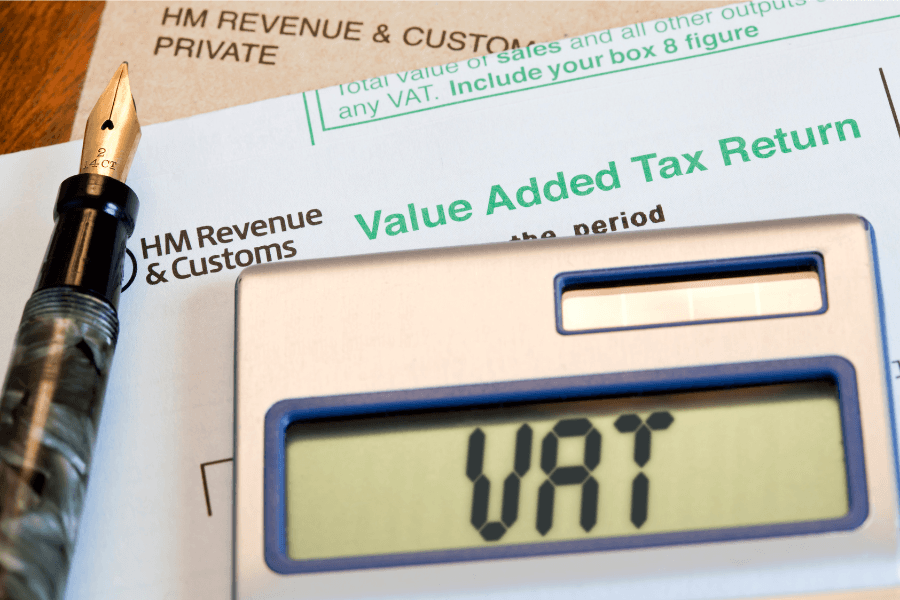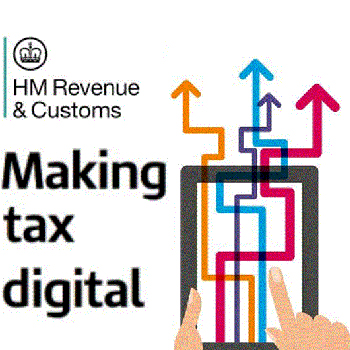Are you VAT-registered or new to filing VAT returns? In this blog, we’re going to break down exactly what to include in your VAT return to help you stay compliant with HM Revenue and Customs (HMRC) and avoid any penalties. Even those with experience can easily miss details or get confused by the requirements.
Here’s what you need to include in your VAT return:
1. Total sales and purchases
First things first, you’ll need to include the total value of your sales and purchases during the VAT period.
This includes:
- Sales – The total value of everything you’ve sold, including the VAT you charged.
- Purchases – The total amount of VAT you paid on business expenses, like supplies or services.
2. The amount of VAT you owe
You’ll need to calculate the amount of VAT you owe to HMRC. This is done by subtracting the VAT you’ve paid on purchases (input VAT) from the VAT you’ve collected on sales (output VAT). If your output VAT is greater than your input VAT, the difference is what you’ll owe HMRC.
3. The amount of VAT you can reclaim
On the flip side, you can claim back VAT on many of your business expenses. This could include things like office supplies, equipment, or services used for your business. Make sure you’re including the correct VAT amounts that you can reclaim on your VAT Return to lower what you owe.
4. The amount of VAT you’re owed from HMRC
If you’ve paid more VAT on your purchases than you’ve collected on your sales, you’ll be due a refund from HMRC. This will appear in your VAT Return, and you’ll be able to reclaim the difference.
5. VAT on goods or services received instead of money
Sometimes, you might receive goods or services in part-exchange instead of money. You still need to account for VAT on the full value of what you’ve sold, even if money wasn’t involved in the transaction. Don’t forget to include this in your VAT Return.
6. VAT on sales with no VAT charged
You might also make sales where you don’t charge VAT, due to cases of exemptions or special rules. Even if you haven’t charged VAT, the price you charge the customer is still considered as including VAT. Be sure to account for this when filing your VAT Return too.
7. Special rules for Northern Ireland
If you’re VAT-registered in Northern Ireland, there are some additional things to keep in mind:
- EU Sales – Any sales made to the EU need to be included in your VAT return.
- EC Sales List – In addition to your regular VAT Return, you’ll also need to complete for your EU transactions.
8. Penalties for Mistakes
HMRC can charge you a penalty of up to 100% of any tax under-stated or over-claimed if you send an inaccurate return. So, it’s important to double-check your figures and make sure everything is correct.
9. Accounting for import VAT with postponed VAT accounting
If you’re importing goods into the UK, you can use postponed VAT accounting. This allows you to declare and reclaim import VAT on the same VAT Return, rather than paying it upfront at customs. It’s an easy way to keep your cash flow in check and avoid paying VAT twice.
10. Using estimated figures
If you can’t provide exact figures for your VAT Return, you can ask HMRC for permission to use estimated figures. However, you’ll need a good reason for why you can’t submit accurate figures. If you’re granted permission to use estimates, you won’t face penalties unless you miss the deadline or make errors. Just be sure to provide the correct figures in your next VAT Return.
11. Claiming relief on bad debts
If a customer hasn’t paid you for goods or services, you might be able to claim VAT relief on the bad debt. To qualify for this, the debt must:
- Be older than 6 months.
- Be submitted for relief within 4 years and 6 months from the payment due date or the date of supply, whichever is later.
- Not have been sold to a third party.
- Be charged at the normal price for the goods or services.
You need to keep records about the debt. Submit your claim for a refund in your VAT Return.
Filing your VAT return doesn’t have to be overwhelming. Once you know exactly what needs to be included, it becomes much easier. Keeping good records, staying on top of deadlines, and getting the right figures will help you avoid penalties and ensure you’re staying compliant.
If you’re ever unsure about your VAT return or have any other questions, feel free to get in touch with us.
At Future Cloud Accounting, we’d be more than happy to help you out and make sure everything’s running smoothly for your business.
Email us at info@future-cloud.co.uk or give us a call on 01636 337069.
For the latest updates, news, tips, and more, follow us on social media!




